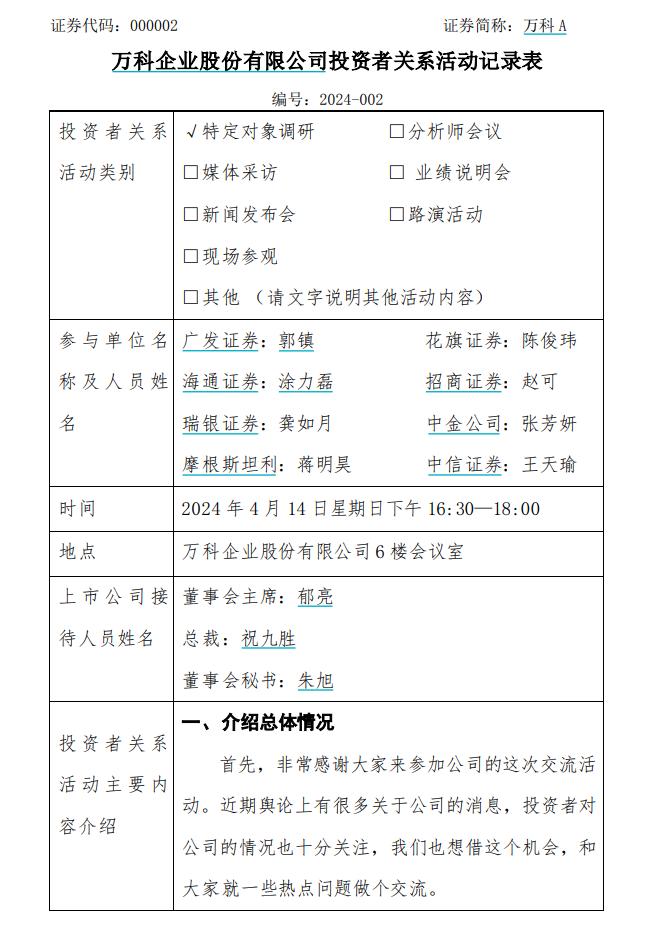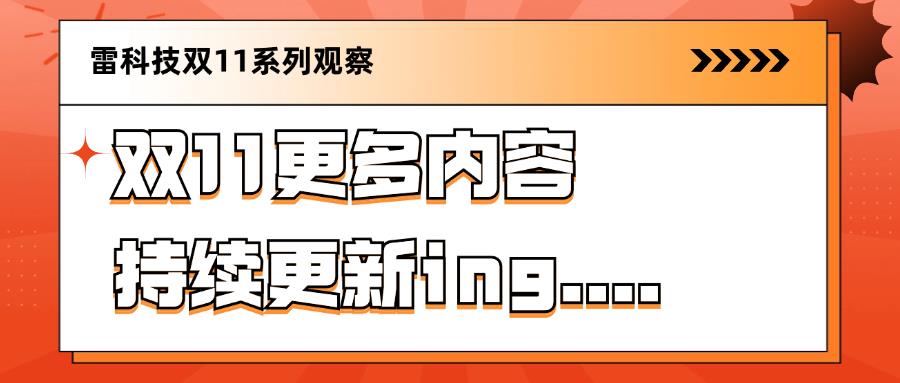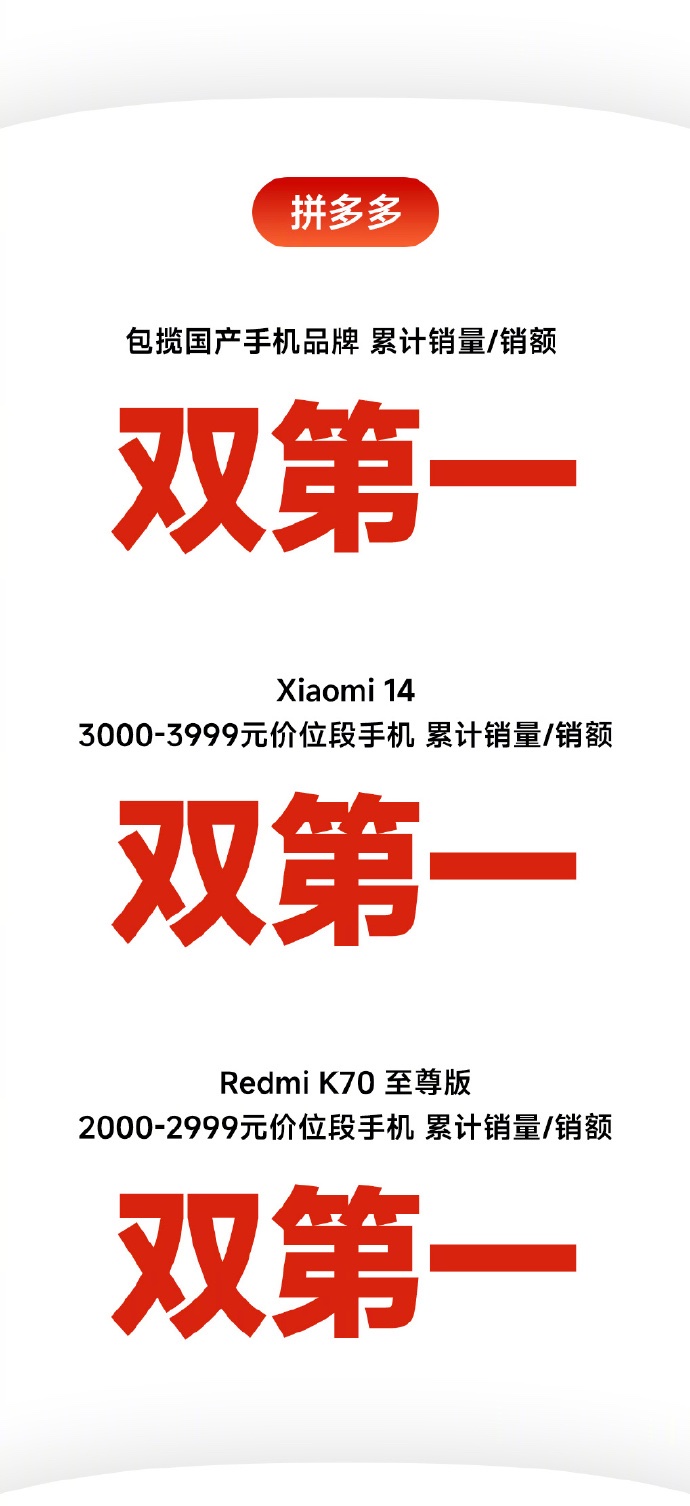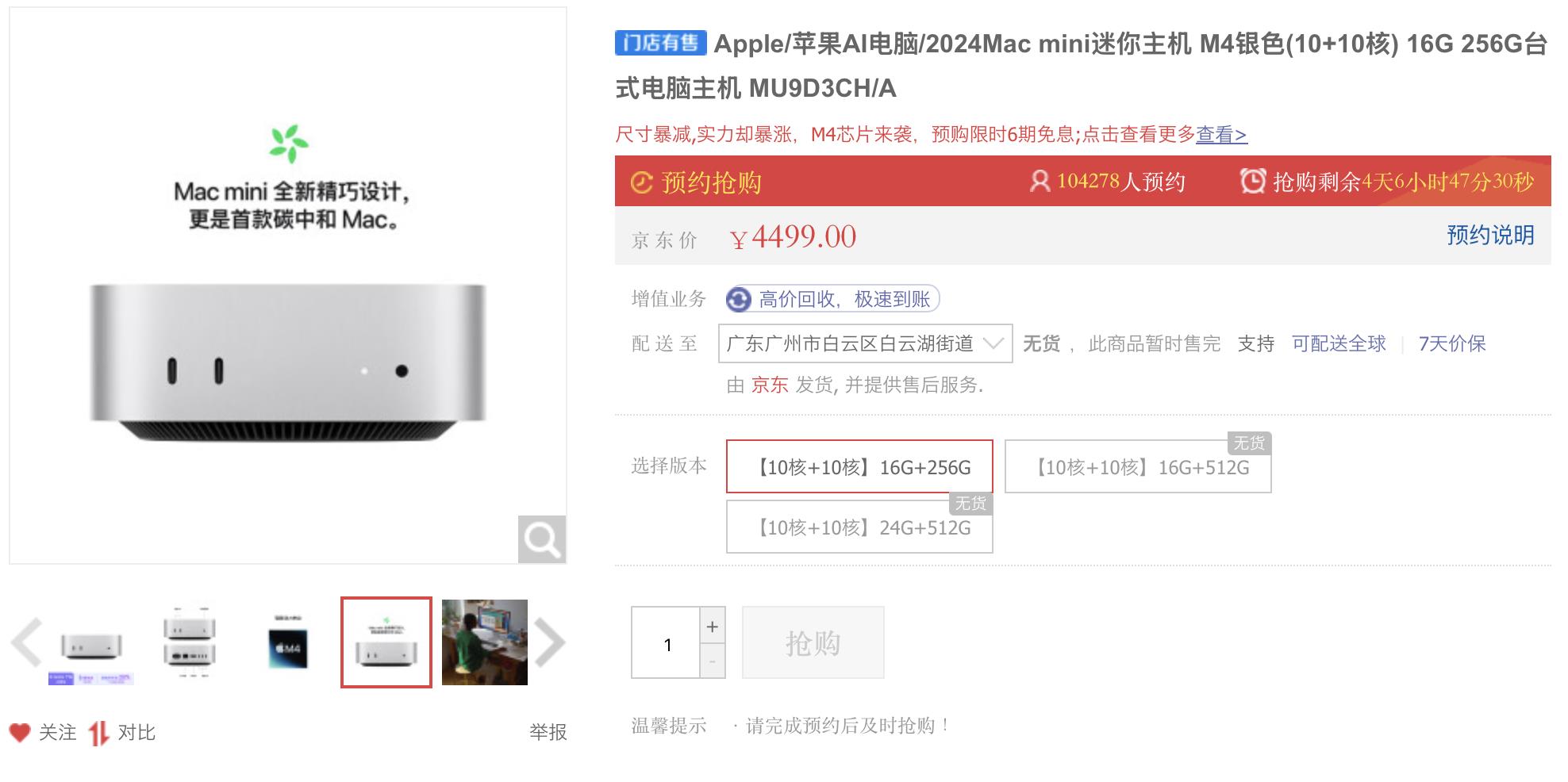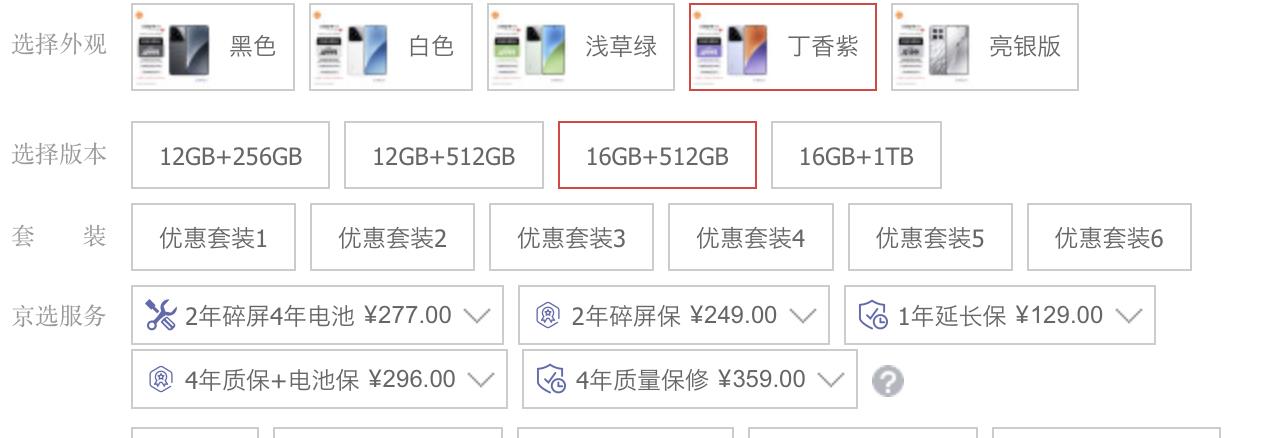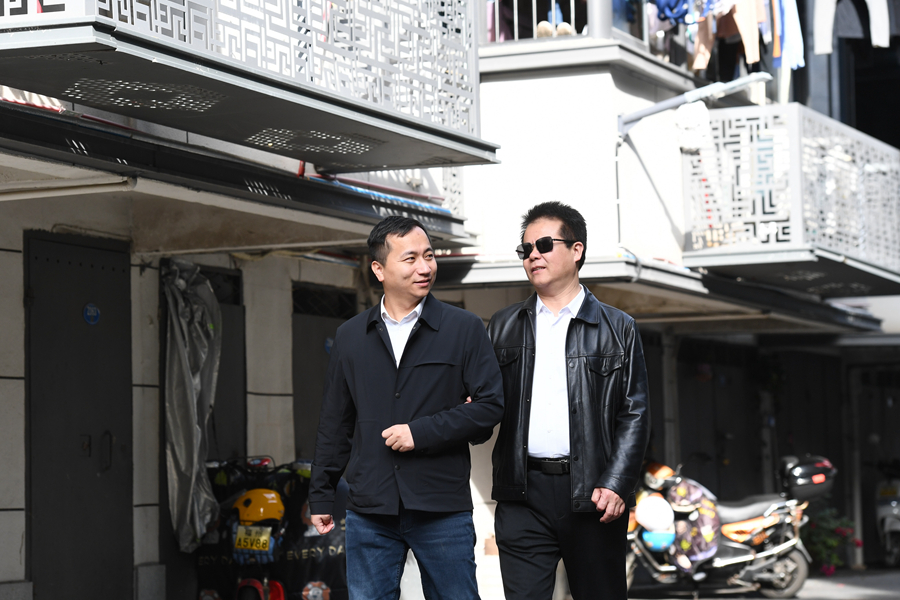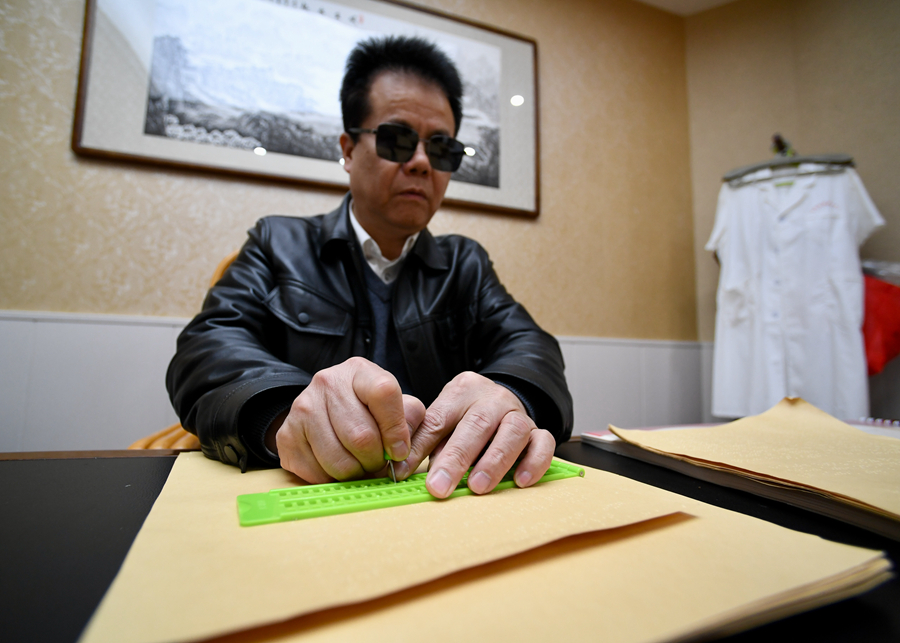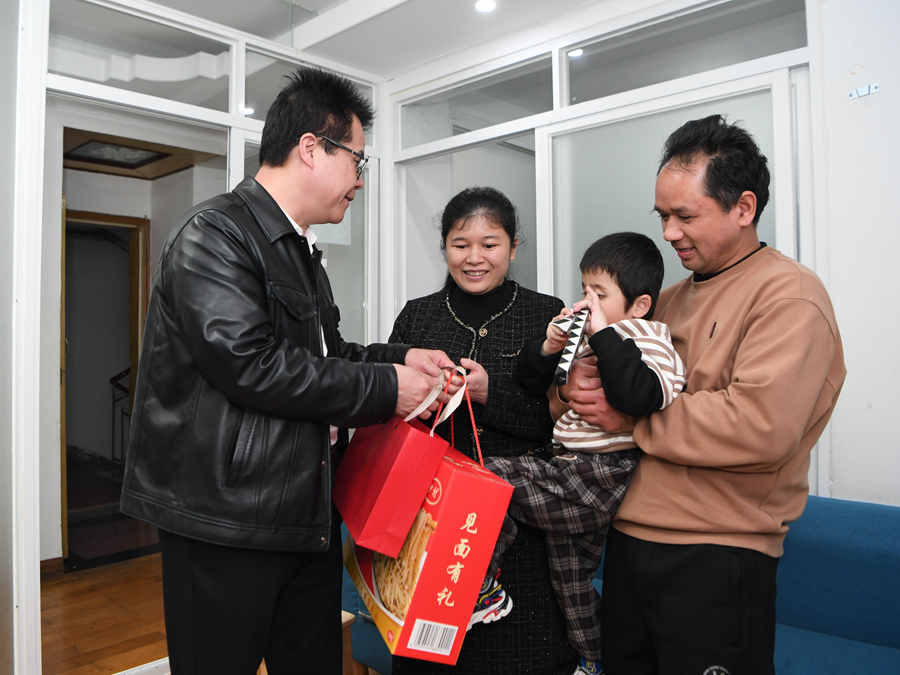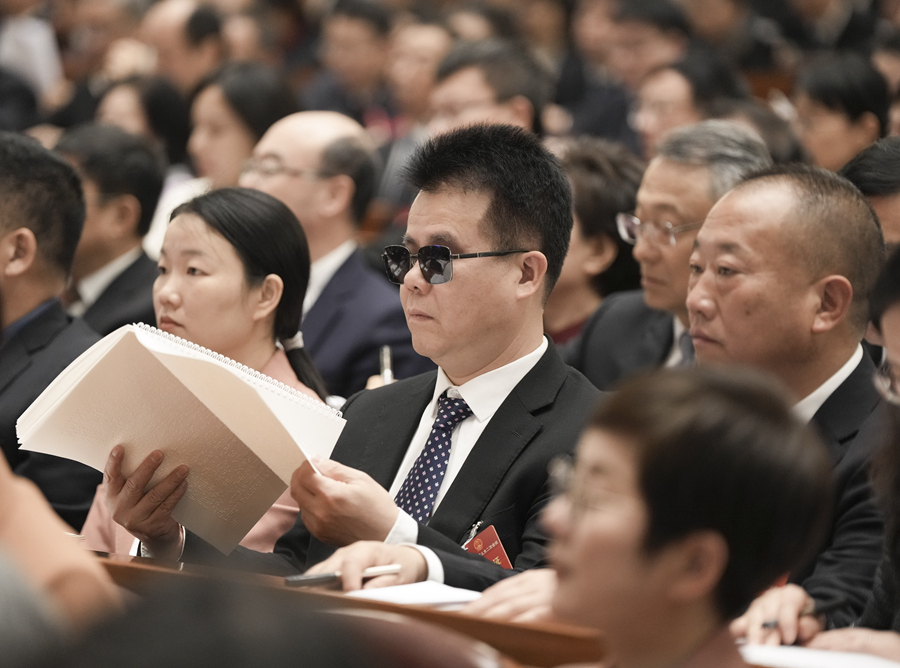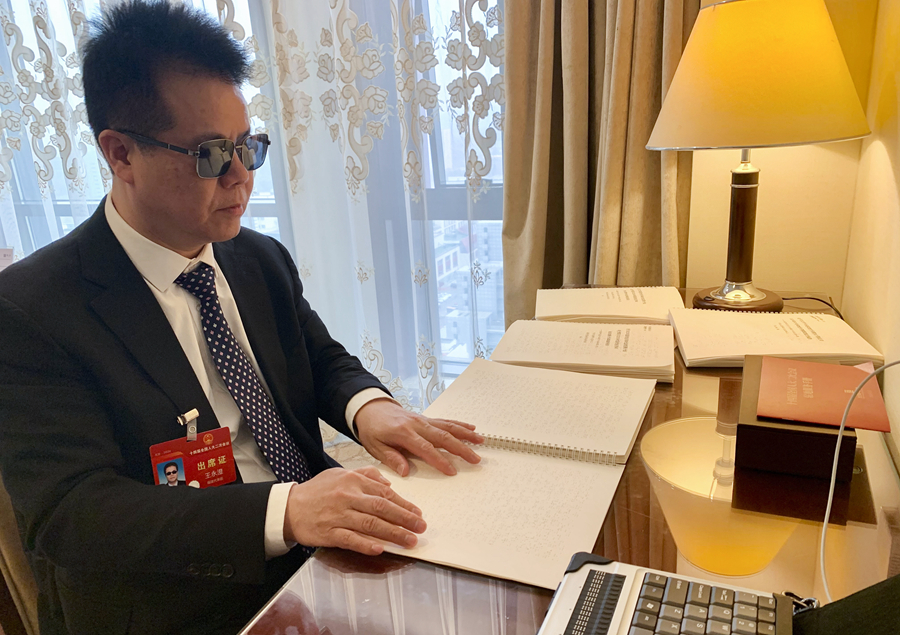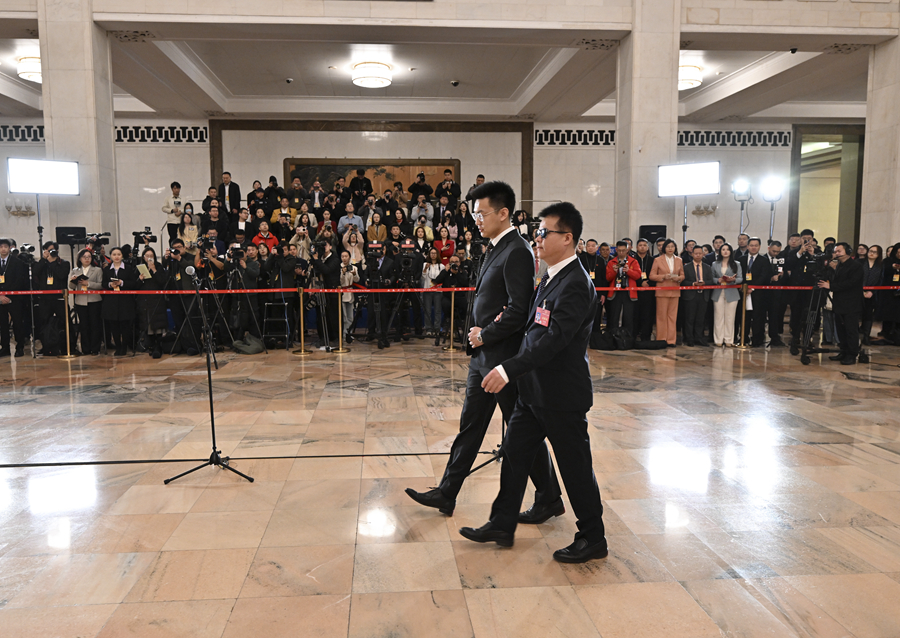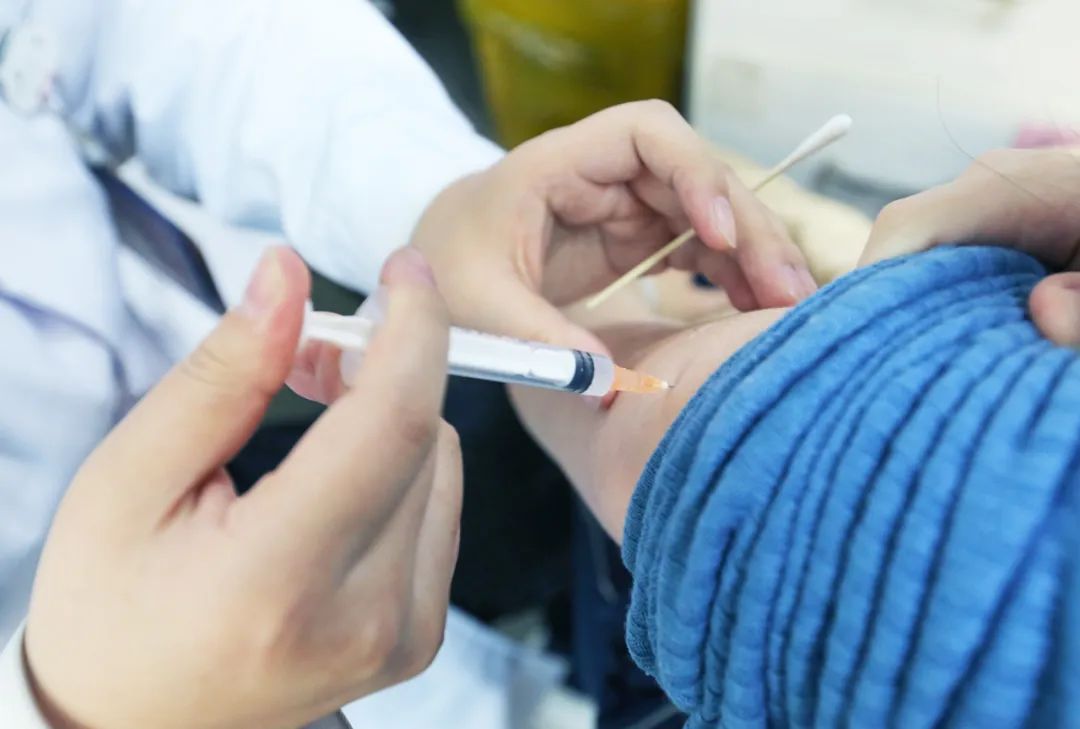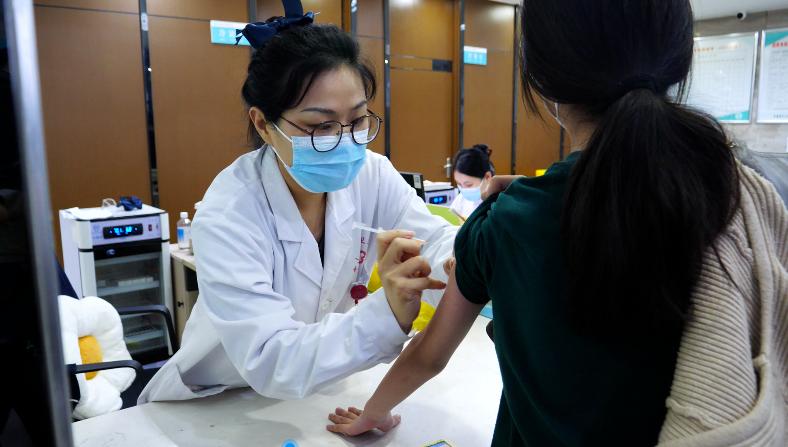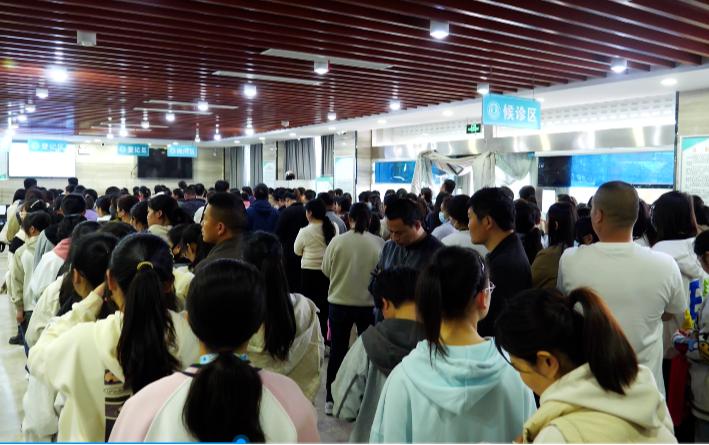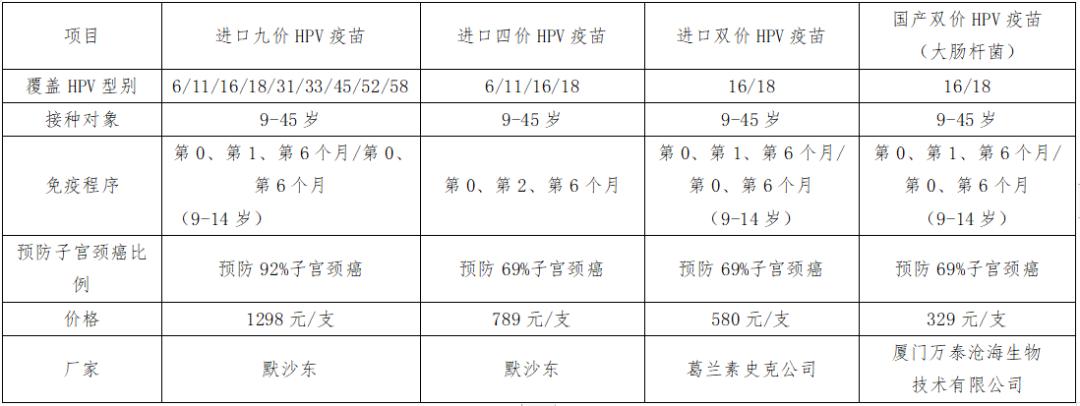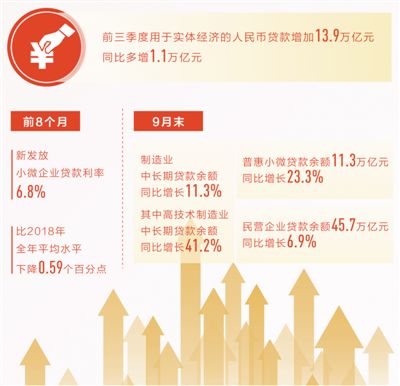
Source: China People’s Bank, China Banking and Insurance Regulatory Commission Cartography: Shen Yiling.
Economy is the body, finance is the blood, and the two coexist and prosper together. According to data released by the People’s Bank of China recently, in the first three quarters, RMB loans issued by financial institutions to the real economy increased by 13.9 trillion yuan, an increase of 1.1 trillion yuan over the same period of last year, focusing on key areas such as infrastructure and manufacturing, and private and small and micro enterprises.
Financial flowing water is smooth, stimulating the vitality of the real economy. Recently, reporters came to Zhejiang, Shandong, Anhui and other places to investigate how the financial industry serves the real economy and explore how to improve the long-term mechanism and further enhance the ability of financial institutions to serve the real economy.
The structure of "quantity" increasing and "price" decreasing is excellent
Advanced manufacturing, private small and micro enterprises, and people’s livelihood in agriculture, countryside and farmers and other key areas and weak links are getting more and more financial support.
Oulong Pump Industry Co., Ltd. is located in Wenling, Zhejiang, and the pump industry is a local characteristic industry. "A few years ago, the production mode of enterprises was simple assembly and processing. In this mode, the quality of workers’ skills directly affects the quality of products, and the return rate of pumps once remained high. " Zhang Jianjun, head of the company, recalled.
After understanding the situation, Taizhou Bank Wenling Daxi Sub-branch provided loans to help enterprises transform and upgrade, with a comprehensive credit line of 4.5 million yuan. With funds at hand, Zhang Jianjun has carried out technical transformation on the painting workshop, coil workshop and installation workshop, which greatly improved the production efficiency of the enterprise, and the output value reached more than 70 million yuan last year. "Without financial support, the transformation and upgrading of enterprises will not be so smooth!"
"In order to better serve the real economy, the relevant departments have made great efforts to launch a number of initiatives and achieved remarkable results." Ceng Gang, deputy director of the National Finance and Development Laboratory, said that since the beginning of this year, the proactive fiscal policy and prudent monetary policy have continued to exert their strength, and the financial services to the real economy, especially private and small and micro enterprises, have been continuously strengthened, and the "obstruction" of the flow of living financial water to the real economy has been gradually opened.
Ceng Gang said that in terms of total volume, the prudent monetary policy is moderately tight, and the monetary policy tools such as the deposit reserve ratio and open market operation are used flexibly, which has kept the market liquidity reasonably abundant and the scale of social financing reasonably increased, providing a good monetary and financial environment for high-quality economic development. From the price point of view, in the first eight months of this year, the interest rate of new loans for small and micro enterprises was 6.8%, which was 0.59 percentage points lower than the annual average in 2018. In August, the central bank announced the reform and improvement of the formation mechanism of LPR (loan market quotation rate), which actually pushed down the market interest rate and benefited the real economy.
"While maintaining a moderate total, the structure of financial supply is also being optimized, with advanced manufacturing, private small and micro enterprises and ‘ Agriculture, countryside and farmers ’ Key areas and weak links such as people’s livelihood are getting more and more financial support. " Ceng Gang said that this depends on the precise efforts of structural policies such as targeted cuts to required reserve ratios and TMLF (targeted medium-term lending facilities). Regulatory requirements such as a 30% increase in the balance of inclusive small and micro enterprise loans of large banks compared with the beginning of the year have also effectively guided the investment of credit funds.
Under the "precise drip irrigation" of financial running water, the bones and muscles of the real economy are stronger.
— — Increase financing in key areas such as private enterprises, small and micro enterprises and advanced manufacturing industries.
"By the end of September, ICBC had lent more than 1 trillion yuan to private enterprises in the real economy, such as manufacturing, software and information technology, and scientific research services." Hu Guangwen, a senior expert in the financial business department of China Industrial and Commercial Bank, said that in terms of resource allocation, ICBC has increased its inclination to private enterprises, giving preferential funds to the departments that provide loans to advanced manufacturing private enterprises, and the price of lending funds has come down, which has reduced the financing cost of enterprises from the source.
The data shows that as of the end of September, the balance of Pratt & Whitney small and micro loans and private enterprise loans increased by 23.3% and 6.9% respectively. The balance of medium and long-term loans in manufacturing industry increased by 11.3% year-on-year, among which the balance of medium and long-term loans in high-tech manufacturing industry increased by 41.2% year-on-year.
— — Support the development of weak links such as infrastructure construction, agriculture, rural areas and people’s livelihood.
"There is no need to find a guarantor anymore, and the red book really works!" Yin Yurong, a farmer in Xiaogang Village, Fengyang, Anhui Province, has successively borrowed nearly 400,000 yuan from the County Agricultural Bank, which has revitalized the low production area of the village and developed the industry of rice and shrimp co-cultivation.
The "red book" in Yin Yurong’s mouth is the stock certificate. Ma Wu Jun, deputy secretary of the Party Committee of Xiaogang Village, said that the village has set up a collective assets joint-stock cooperative and issued share certificates. "Villagers get global credit by virtue of share certificates. As long as the share certificates are pledged to Xiaogang Village Innovation and Development Co., Ltd., they can apply for a loan of 3,000 yuan to 300,000 yuan from the county agricultural bank."
"Rural financial services have played an important role in promoting agricultural production, rural economic development and increasing farmers’ income, and are an important part of financial services in the real economy." Dong Ximiao, chief researcher of Xinwang Bank, believes that rural finance is one of the focal points of rural revitalization, and should be based on the needs of new agricultural business entities and innovate financial business models and products and services.
Establish and improve a long-term mechanism
The financial information service platform accurately connects supply and demand, and the due diligence exemption mechanism still needs to be improved.
"I thought that the first loan was cumbersome and took a long time, but after this loan, I completely changed my mind." Huang Yongchao, general manager of Shandong Dezhou Sheng Bang Sports Group Co., Ltd. said with deep feelings.
Sheng Bang Sports is a high-tech enterprise specializing in the design, research and manufacture of SMC polymer composite products. This year, due to the adjustment of business strategy, the production scale has expanded and the capital turnover pressure has increased. Enterprises have never lent money before, how to deal with banks? Huang Yongchao is at a loss.
"By chance, I learned that a financing service network system has been built in the province, just at ‘ Shandong government service network ’ ‘ Enterprise financing demand collection ’ In the section, I tried to publish financing information. " Huang Yongchao said that I didn’t expect Dezhou Bank to find the financing needs of enterprises through the platform, and immediately went to the door to dock and give the company a credit of 10 million yuan. "It took only 10 days from the release of financing demand to obtaining a loan, which is really convenient!"
One of the biggest troubles for financial institutions to serve private and small and micro enterprises is information asymmetry, but this situation is slowly changing. In many parts of the country, various financial information service platforms are constantly emerging, setting up a "connecting bridge" between banks and enterprises:
The National Development and Reform Commission and the China Banking and Insurance Regulatory Commission recently jointly issued the "Notice on Deepening the Support of Small and Medium-sized Enterprises with Credit Loans", demanding that the information asymmetry between banks and enterprises be solved by strengthening the collection and sharing of credit information; In Shaanxi, the credit financial service platform led by the government has collected the basic information of more than 2 million enterprises in the province and the in-depth information of social security, taxation and land of nearly 17,000 enterprises, realizing the financing demand docking of 18 billion yuan; In Jiangxi, in the first eight months of this year, 84.53 billion yuan of loans were issued through the financing service platform for small and micro enterprises, accounting for 33.3% of the total amount of small and micro loans granted by the province in the same period.
The "Several Opinions on Strengthening Financial Services for Private Enterprises" issued earlier proposed that we should pay close attention to building and improving big data service platforms such as finance, taxation, market supervision, social security, customs and justice, and realize cross-level cross-departmental cross-regional interconnection. Improve and optimize the information docking mechanism between financial institutions and private enterprises, and realize efficient online docking between the supply and demand sides of funds.
"Encouraging and guiding finance to support the real economy requires many supporting measures." Ceng Gang said that the construction of financial information service platforms in various places is a useful exploration to establish and improve a long-term mechanism. Local governments are rich in social security, justice and other information, and have the ability to integrate the information originally scattered in various departments to form a huge database. If used legally and in compliance, these precious data will greatly help financial institutions to improve their service level.
To promote the construction of a long-term mechanism to serve the real economy, we should not only solve the problem of information asymmetry, but also improve the "dare to lend" mechanism of financial institutions. Zhu Shumin, vice chairman of China Banking and Insurance Regulatory Commission, said that China Banking and Insurance Regulatory Commission continued to push banks to further improve the due diligence exemption mechanism, and urged banks to include micro-loan business in the assessment system.
The reporter learned that Chongqing Banking Insurance Regulatory Bureau recently conducted a thorough investigation on the due diligence exemption of small and micro enterprise loans of banks under its jurisdiction. From the feedback, it has achieved certain results in practice. According to the data, in the first half of this year, the banks under the jurisdiction of Chongqing Banking Insurance Regulatory Bureau exempted 542 million yuan of non-performing loans of small and micro enterprises from due diligence, involving a total of 1,043 exempted employees, including 221 bank managers, 163 approval positions and 659 credit account managers. In order to improve the efficiency of exemption, Chongqing Rural Commercial Bank delegated the exemption authority, giving the branches the due diligence exemption recognition authority within 500,000 yuan.
The insiders believe that although some progress has been made, the due diligence exemption mechanism is still not perfect, and it is difficult to completely eliminate the worries of account managers. For example, although the regulatory authorities’ tolerance for non-performing loans to small and micro enterprises has increased to 3 percentage points, many banks pay more attention to the assessment of the overall non-performing rate, and they have not separately assessed the non-performing rate of small and micro enterprises, so it is difficult to reflect the policy preferences.
The key to a good policy is implementation.
We will implement various policies that have been introduced to reduce taxes and fees and reduce financing costs.
The Monetary Policy Committee of the People’s Bank of China pointed out at its regular meeting in the third quarter of 2019 that it is necessary to optimize the financing structure and credit structure in accordance with the requirements of deepening the structural reform of the financial supply side, increase support for promoting high-quality development, and improve the adaptability of the financial system to the supply system and the demand system. We will make great efforts to unblock the transmission of monetary policy, adhere to market-oriented reforms to promote a significant reduction in real interest rates, and guide financial institutions to increase their support for the real economy, especially private and small and micro enterprises.
"At present, the downward pressure on the economy is increasing, and the real economy is facing certain difficulties. We should play a good policy ‘ Several lifts ’ Together, we will implement various policies such as tax reduction and fee reduction and financing cost reduction, flexibly use macro-policy countercyclical adjustment tools, do a good job in policy coordination and linkage, strengthen pre-adjustment and fine-tuning, ensure economic operation in a reasonable range, and stabilize the expectations of private and small and micro enterprises. " Ceng Gang said.
How to further improve the due diligence exemption mechanism and get through the "last mile" of serving private and small and micro enterprises? Dong Ximiao believes that the supervision of banking institutions should be continuously carried out, and banks should be forced to further improve their internal mechanisms through on-site inspections, window guidance and quarterly discussions. Explore the basic identification standards of due diligence in all aspects of small and micro enterprise loans, and eliminate the concerns of grassroots account managers to the greatest extent by clarifying the boundaries of due diligence and exemption.
Ge Mengchao Yu Jingxian Plateau

